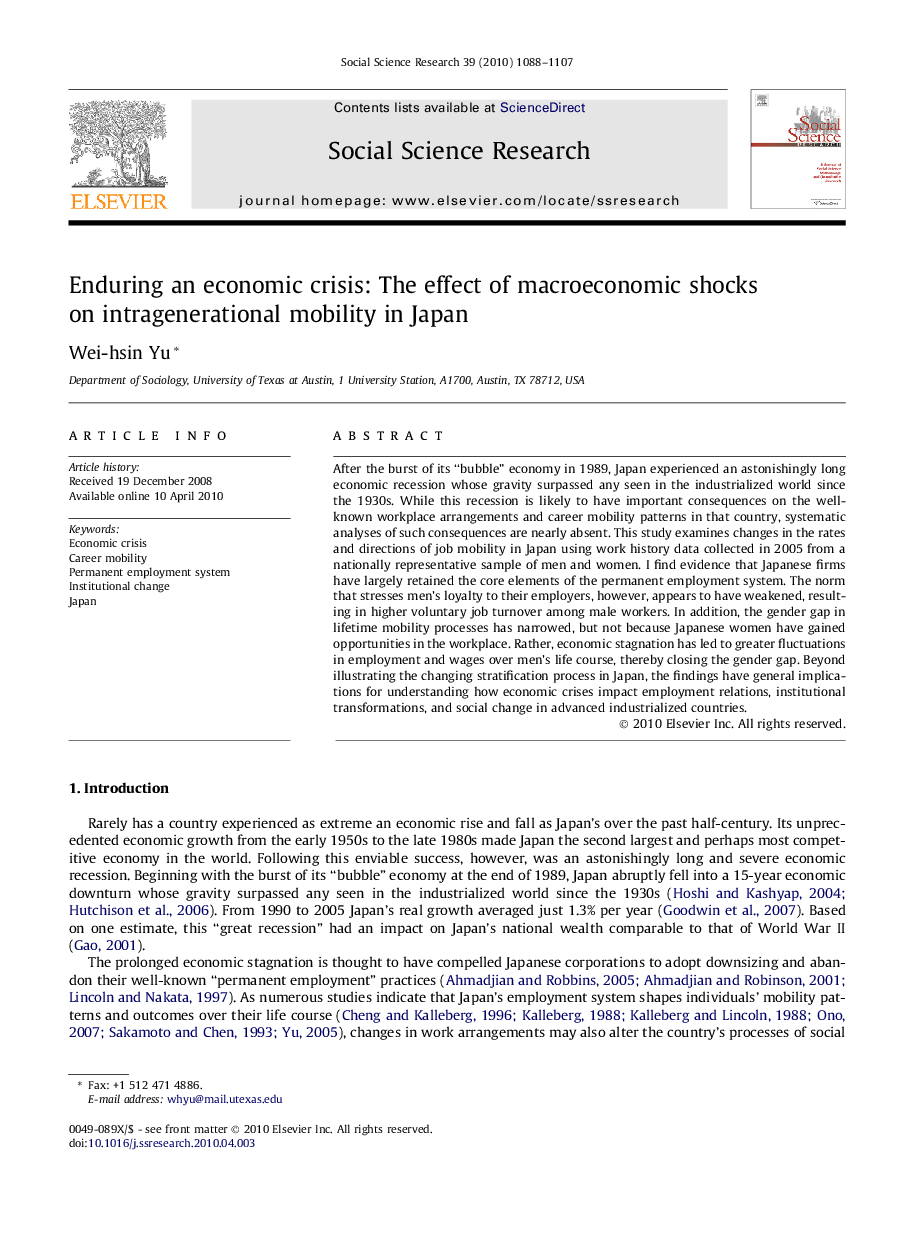| Article ID | Journal | Published Year | Pages | File Type |
|---|---|---|---|---|
| 956177 | Social Science Research | 2010 | 20 Pages |
After the burst of its “bubble” economy in 1989, Japan experienced an astonishingly long economic recession whose gravity surpassed any seen in the industrialized world since the 1930s. While this recession is likely to have important consequences on the well-known workplace arrangements and career mobility patterns in that country, systematic analyses of such consequences are nearly absent. This study examines changes in the rates and directions of job mobility in Japan using work history data collected in 2005 from a nationally representative sample of men and women. I find evidence that Japanese firms have largely retained the core elements of the permanent employment system. The norm that stresses men’s loyalty to their employers, however, appears to have weakened, resulting in higher voluntary job turnover among male workers. In addition, the gender gap in lifetime mobility processes has narrowed, but not because Japanese women have gained opportunities in the workplace. Rather, economic stagnation has led to greater fluctuations in employment and wages over men’s life course, thereby closing the gender gap. Beyond illustrating the changing stratification process in Japan, the findings have general implications for understanding how economic crises impact employment relations, institutional transformations, and social change in advanced industrialized countries.
